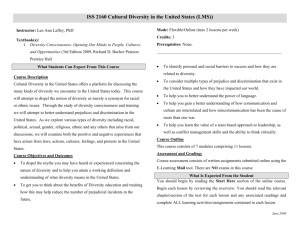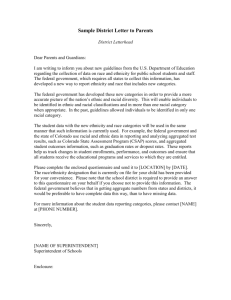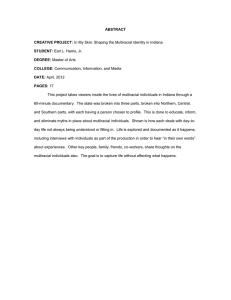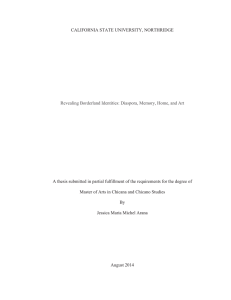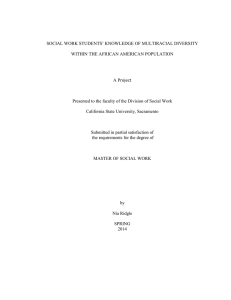Cali Bill Fact Sheet
advertisement
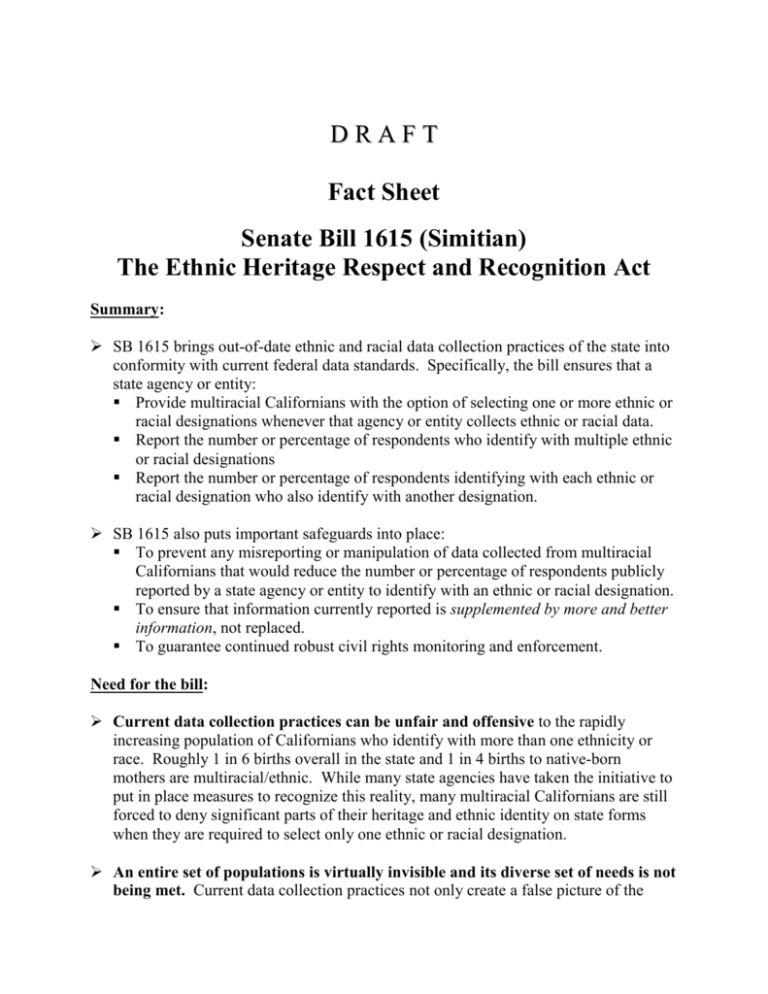
DRAFT Fact Sheet Senate Bill 1615 (Simitian) The Ethnic Heritage Respect and Recognition Act Summary: SB 1615 brings out-of-date ethnic and racial data collection practices of the state into conformity with current federal data standards. Specifically, the bill ensures that a state agency or entity: Provide multiracial Californians with the option of selecting one or more ethnic or racial designations whenever that agency or entity collects ethnic or racial data. Report the number or percentage of respondents who identify with multiple ethnic or racial designations Report the number or percentage of respondents identifying with each ethnic or racial designation who also identify with another designation. SB 1615 also puts important safeguards into place: To prevent any misreporting or manipulation of data collected from multiracial Californians that would reduce the number or percentage of respondents publicly reported by a state agency or entity to identify with an ethnic or racial designation. To ensure that information currently reported is supplemented by more and better information, not replaced. To guarantee continued robust civil rights monitoring and enforcement. Need for the bill: Current data collection practices can be unfair and offensive to the rapidly increasing population of Californians who identify with more than one ethnicity or race. Roughly 1 in 6 births overall in the state and 1 in 4 births to native-born mothers are multiracial/ethnic. While many state agencies have taken the initiative to put in place measures to recognize this reality, many multiracial Californians are still forced to deny significant parts of their heritage and ethnic identity on state forms when they are required to select only one ethnic or racial designation. An entire set of populations is virtually invisible and its diverse set of needs is not being met. Current data collection practices not only create a false picture of the state’s diversity but also set up a situation where accurate, reliable information is not available to doctors, teachers, service providers, and policymakers. For example, there is an increasing awareness in the healthcare community that intake forms requiring people to mark “only one race” can prevent doctors from providing culturally appropriate and medically relevant information to their multiracial patients. Individual communities of color are systematically underreported. By forcing multiracial Californians to deny and hence not report part of their ethnic identity, current practices lead to a situation in which the true numbers for members of minorities and communities of color are underreported. Current state data collection practices are anachronistic and inconsistent with federal standards. Since 1997 when the federal government revised its “Standards for Maintaining, Collecting, and Presenting Federal Data on Race and Ethnicity,” federal agencies have been required to ensure that multiracial individuals have the option of selecting one or more ethnic or racial designations on federal government forms requesting such data. With several key exceptions, many state agencies and entities have not caught up and are still employing outdated practices. This is unacceptable in the largest and most diverse state in the country. The status quo perpetuates the myth that almost everyone fits neatly into a single racial category when in fact an increasingly large percentage of California’s population does not. Staff Contact: Rei Onishi, (916) 651-4011, rei.onishi@sen.ca.gov

![[insert organizational header]](http://s3.studylib.net/store/data/007468113_1-a7a4132c2cccee9d2a64f31f82f0e078-300x300.png)
